There was a time when were told to eat a lot of carbs, now the trend is to eat a low carbs diet. There was a time when egg was shunned as a food that gives you high cholesterol. Now you are encouraged to eat eggs because apparently egg doesn’t have bad cholesterol. New research is always changing our perception about food. The diet trends are also changing also changing all the time. You need to make sure that the dietary guidelines you are following are in line with what nutritionists say, and not just a fad diet. A classic example of this is the gluten diet. Now, gluten diet is only recommended for people with the celiac disease. But, a lot of people have jumped on the bandwagon. Going gluten-free when you don’t need to can have health repercussions like heart diseases and diabetes for you. We have compiled a list of seemingly bad health habits.
Bad Health Habits
Alternative Natural Sugars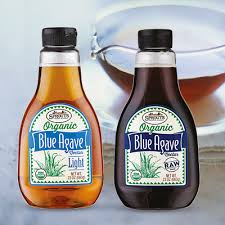
As we all know by now, sugar consumption is harmful to your overall well being. But, that doesn’t make alternative sweeteners like agave any better. In fact, they are just as bad. A large number of patients think that alternative sweeteners are more advantageous than sugar since they are apparently natural. Agave, nectar, and maple syrup still contain calories. Agave, for instance, contains marginally more calories per teaspoon, 21, than sugar!” Studies have found that the levels of fructose in agave, nectar, and other “characteristic” sweeteners are no more secure for your wellbeing. Whatever sweetener you pick, the American Heart Association suggests close to six teaspoons of sugar for every day for ladies and nine for men.
Also Read: Superfoods For Diabetics
Avoiding Dairy
Another bad health habit is quitting dairy. The latest health trend is to ditch the dairy. The theory is that you do not need to drink milk past infancy. The evidence presented is that 65 percent of the world population is lactose intolerant. While it is true that humans are the only animals who drink milk after reaching adulthood too, we have evolved genetically to adapt to milk. Milk is vital for your health. Dairy has important nutrients like calcium, whey protein, and conjugated linoleic acid. Some old research has reported that low-fat dairy can help lower blood pressure. The new research says that full-fat dairy has this capability too. A recent research has discovered that eating full-fat dairy make you gain less weight, maybe because it keeps you full for longer. Dairy can even help reduce the risk of heart diseases and diabetes. Milk has calcium which is vital for healthy bones and teeth. It also helps to maintain bone mass. It also has protein which acts as a source of energy for your body. It also helps repair muscle tissues. Milk also helps potassium which helps regulate blood pressure. It also has phosphorous which is required for strong bones and generating energy. Milk is often fortified with vitamin D. A lot of people are deficient in vitamin D. Drinking milk can complete your daily vitamin D requirements too. Milk also has vitamin B 12 which helps red blood cells and nerve tissue. It also has vitamin A, which is great for skin and vision. It also has B 2 which helps convert food into energy. Milk is also a good source of niacin which helps metabolize sugar and fatty acids. In short, milk has a lot of wonderful benefits. You will miss out if you ditch milk. Even as little as one glass of milk can be very healthy for you. The nutrients found in milk contribute to your overall health and wellness. If you drink milk after exercise, it will help you gain muscles. Milk deficiency can lead to anemia and osteoporosis. You can add fruits like bananas and mangoes to milk to make a healthy smoothie. Unless you really are lactose intolerant, do not ditch dairy just because a person who isn’t even qualified to give you such advice said so.
Also Read: Burn Calories Fast With These Activities
Low Sodium
If you’ve ever suffered from high blood pressure, chances are you were told to limit or stop consuming sodium. A new research from Boston University which followed 2,600 people for a period of16 years has found that a low-sodium diet does not really lower blood pressure. So, maybe salt is not the bad guy. A little salt should be a part of healthy diet. The research also discovered that people with the lowest consumption of sodium (and those with the highest) were at a greater risk for heart disease than the people who consumed salt in a moderate amount. This does not imply that you should go overboard with the consumption of processed foods that are high in sodium. Instead of going crazy with processed foods that are full of sodium, add more whole foods in your diet. Whole foods are great for heart health. Sodium is a very important electrolyte and it is a vital ion in the extracellular fluid (ECF). Sodium is required for muscle contraction and enzyme operations. It is also required for osmoregulation and fluid maintenance in the body. Sodium also improves heart health, nervous system and the absorption of glucose. Sodium is also needed for blood regulation. The absence of sodium can impair bodily functions. As an electrolyte, sodium regulates the bodily fluids. It also transmits electrical impulses. Heat has no effect on sodium. People who have kidney problems or edema should limit their intake of sodium. To sum it up, sodium is an important component of the human diet. It regulates cellular activity and also the nervous system function. The recommended daily intake of sodium is 2400mg per day. A sodium deficiency can lead to health problems. Going low sodium is a bad health habit in fact.
Also Read: Get The Most Out Of Your Workouts With These Foods
Not Consuming Fat
Just like dairy, fat is not a bad thing. The debate is still on about saturated fats, but other fats are good for you when consumed in moderation. Plant-based fats like monounsaturated fats which are found in foods such as avocado and almonds and omega-3 fatty acids that are found in fish have many health benefits. These fats may help calm down inflammation, improve blood lipid levels, and might even help maintain a lower body weight. A lot of processed foods with labels claiming to have reduced fat actually have a lot of sugar and additives. This makes them very unhealthy. Do not be afraid of fats! You can eat good fats in moderation. Good fats come from animals, fishes, and plants. Avocado, nuts, olives, and nuts are good sources of fat. They have a high proportion of monosaturated fats and are high in omega 3s. Our ancestors had a diet consisted of 75 percent fat, 20 percent protein and 5 percent carbs compared to our diet of 60 percent carbs, 20 percent protein and 20 percent fat. Some studies have shown that obesity epidemic, which has nearly doubled in the last fifty years, is not because we eat too much fat but because we eat a lot of carbs and sugar. Brain tissue is made up of 60 percent fat. A diet that is low in fat will affect your brain functions. Vital vitamins like A, D, and E are not water soluble. To get transported around the body, they need fat. They are very important for our brain and overall health. Your lungs are covered with a substance made entirely of saturated fat. Premature infants who are lack this substance are usually given “surfactant” to ensure their lungs are working properly. Your lungs will be compromised if there is not enough saturated fat. Your lungs can be compromised without a sufficient amount of good fats The breakdown of the fatty layer can cause health problems. Saturated fats present in butter and coconut oil are great for immune health. The loss of enough saturated fatty acids in the white blood cells can mess with their ability to identify and destroy bacteria, viruses, and fungi. The cellular membrane is largely made up of fats. Your skin is made up of many cells. Without the proper intake of fat, your skin can become dry and look chapped, which can make it easier for infections to enter our body.
Also Read: Avocado Oil: The Latest Healthy Oil
Cholesterol In Food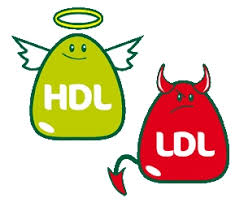
Being afraid of egg yolks is also one of the bad health habits you need to get rid of. If you think you are healthy because you eat egg whites, think again. Egg yolks are high in dietary cholesterol, which can be healthy. People thought that dietary cholesterol affected blood cholesterol levels and that cholesterol-rich foods like eggs should be avoided. We now know that dietary cholesterol has a very little effect on blood cholesterol levels. Blood cholesterol isn’t so simple. There is good cholesterol which helps heart health. Then there is bad cholesterol. Egg yolks are full of vitamin E and carotenoids.
Also Read: Trying To Wean Yourself Off Sugar? Try These Tips
So-Called Healthy Processed Foods
You might think diet products like salad dressings are healthy for you but they are not. Foods like these used to be popular but all they did was remove fats and add sugars. A lot of sugar in your diet is way more harmful than added fats for your health. People who consume a lot of sugar increase their chances of dying from heart diseases. When you buy the so-called healthy foods, check the ingredients to ensure that fats have in fact not been replaced by sugar. Some healthy foods like energy bars are full of additives. Sometimes even prepackaged vegetarian or vegan foods can be harmful. Just because something is vegan doesn’t mean it is healthy. Food items like these can be very high in calories. Always read food labels before buying such foods.
Also Read: Foods To Steer Clear Of If You Have Anxiety
Gluten Free When You Don’t Have Celiac Disease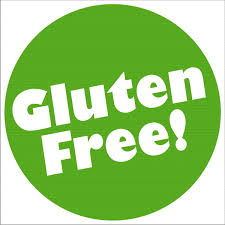
Gluten, found in grains like wheat, grain, and rye, has gotten criticism of late, and a few people believe it’s more beneficial to abandon it. Be the inverse may be valid. Unless you are genuinely hypersensitive to gluten, there is no compelling reason to keep away from it. A review from Spain really demonstrated that going sans gluten prompted diminished gut microscopic organisms, which influences immune function. Another review from the University of Illinois likewise found that individuals who were without gluten had larger amounts of arsenic, presumably in light of the fact that they have a tendency to eat a great deal of rice. Likewise, some people avoid gluten abstains from food as an approach to reduce body weight, however, gluten-free food may actually make you gain weight. Choose whole grains if you go gluten free to ensure you are consuming enough fiber. Going gluten free when you do not need to isone of the bad health habits you need to get rid of.
Also Read: Add Protein To Your Smoothie With These Ingredients
Eating Whole Grains
When looking for whole grains, one mistake that people often make is not reading the labels properly. If a food is labeled whole grain or multi grain, there is a chance that it is not 100% whole grain. 100-percent whole grains can bring down your danger of stroke, coronary illness, and diabetes. Multi-grains can sometimes just be a blend of different grains, which can be refined and whole both. Do not be fooled by labels that say multi-grain. Read the whole ingredient list to make sure you are buying 100 percent whole grain.
Also Read: Health And Beauty Benefits of Green Tea
Drinking Alternative Milk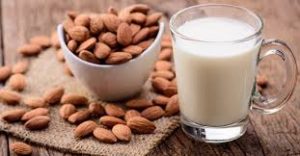
There is nothing really wrong about alternative sources of milk, they won’t give you the supplements you believe you’re getting. Almond doesn’t have enough protein.—it contains just two grams of protein for every serving contrasted with eight grams in cow’s milk. In spite of the fact that you consider nuts high in protein, the milk is mostly water, so the supplements get lost. What’s more, be cautious in case you’re trading cow milk for infants—a review from France demonstrated this can bring about dietary inadequacies. The dairy business has even propelled a battle to avoid almond and other plant-based milks from being called milk so shoppers won’t believe they’re nutritiously comparable. If you still drink nuts milk, make sure they are unsweetened.
Also Read: Collagen For Better Skin and Overall Health
Thaks to self-proclaimed fitness experts, it is hard to know what is healthy and what is not these days. It is easy to get lured into the promises of fads like gluten free (for those who do not have the celiac disease). Whenever you read about a health trend and feel like adopting it, do a proper research on it. Find out if that particular trend/diet suits you. Do not blindly follow health trends because some of them are just bad habits. The best example is perhaps the gluten free diet. A lot of celebrities and fitness bloggers advocated gluten free diet, even for people who did not have the celiac disease. Research has now found that going gluten free if you don’t need to can cause health problems. Click buy ivermectin for humans . Similarly, there is a lot of hype about nuts milk these days which is basically just nuts blended with water! If someone is lactose intolerant, it is understandable if they drink lactose milk. But if you are not, do not deprive your body of milk. Milk is one of the best sources of calcium. Avoid these bad health habits if you care about your health and well-being.
Also Read: Foods That Give You Quick Energy
Have you ever been the victim of bad health habits such as swapping nuts milk for regular milk or going gluten free? Share with us in the comments below!
Also Read: All You Need To Know About Gluten Free Diet












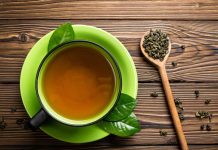





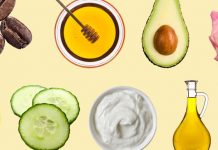













[…] Also Read: Bad Health Habits That You Think Are Healthy For You […]
[…] More Water If you have any tips to get smarter, share with us in the comments below! Also Read: Bad Health Habits That You Think Are Healthy For You var td_screen_width = window.innerWidth; if ( td_screen_width >= 1140 ) { /* large monitors */ […]